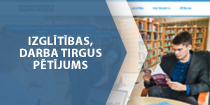|
|
Nordic-Baltic Collaboration to Boost the Bio- and Circular Economy (BioBaltic)
BioBaltic aims at deepening Nordic-Baltic cooperation around bio-circular-economy.
Both – Nordic and Baltic countries are rich in biological and renewable resources and have a long tradition in utilizing these resources for generating economic growth through the traditional sectors, such as forestry, agriculture, and fisheries, as well as related sectors including food processing, tourism etc.
This project provides a platform for generating awareness of different bioeconomy models through peer-to-peer learning and building networks across Baltic and Nordic countries. This collaboration will enable knowledge generation and exchange among multiple actors, including youth. The collaboration will focus on different aspects of bioeconomy transition, including financing aspects, industrial partnerships and symbiosis or the opportunities of digitalisation.
A two-way learning channel will be established between each Baltic country and the Nordic Countries through Nordregio. The ‘Mobile Learning Hubs’ (MLHs), coordinated by the NCM offices in Estonia, Latvia and Lithuania, will collect and disseminate practical and scientific knowledge on bio-circular-economy, in collaboration with local actors.
| Title |
Nordic-Baltic Collaboration to Boost the Bio- and Circular Economy |
| Abbreviation |
BioBaltic |
| Lead partner |
Nordregio (Sweden) |
| Programme |
Nordic Council of Ministers' Office co-operation project program |
| Partners |
1. Nordregio, Sweden
2. Nordic Council of Ministers’ offices in Estonia, Latvia & Lithuania
3. Vidzeme Planning Region, Latvia
4. Vidzeme University of Applied sciences, Latvia
5. Latvian Food Bioeconomy Cluster, Latvia
6. University of Life Sciences in Tartu, Estonia
7. Tallinn Science Park Tehnopol, Estonia
8. TalTech Mektory, Estonia
9. Vytautas Magnus University, Lithuania
10. Lithuanian biotechnology association, Lithuania
11. Vilnius University, Life Sciences Center, Institute of Biotechnology, Lithuania |
| Objectives |
1. Better understanding of the state of development of forms of bio- and circular-economy models generated;
2. Increased collaboration between bioeconomy players, including students, businesses, institutions and others;
3. Students are provided with information about the main challenges in the digitalisation of the bioeconomy and they have gained practical experience in solving them.
|
| Activities |
1. Peer-to-peer learning amongst key actors;
2. Capacity-building, including students, businesses, authorities and others;
3. Exploring business opportunities.
|
| Results |
- Several young individuals trained/informed about bioeconomy during project events and communication campaign;
- A case study on youth involvement in digitizing bioeconomy through multi-stakeholder cooperation carried out;
- Students are informed about the main challenges in the digitalization of the bioeconomy and have gained practical experience in solving them.
|
| Budget |
Total budget: 2 317 835 DKK / ~ 311,582.78 EUR |
| Implementation period |
01.10.2021.-31.08.2023.
|
| Contact person |
Maija Rieksta
+371 26099521
Maija.rieksta@vidzeme.lv |
|
|





